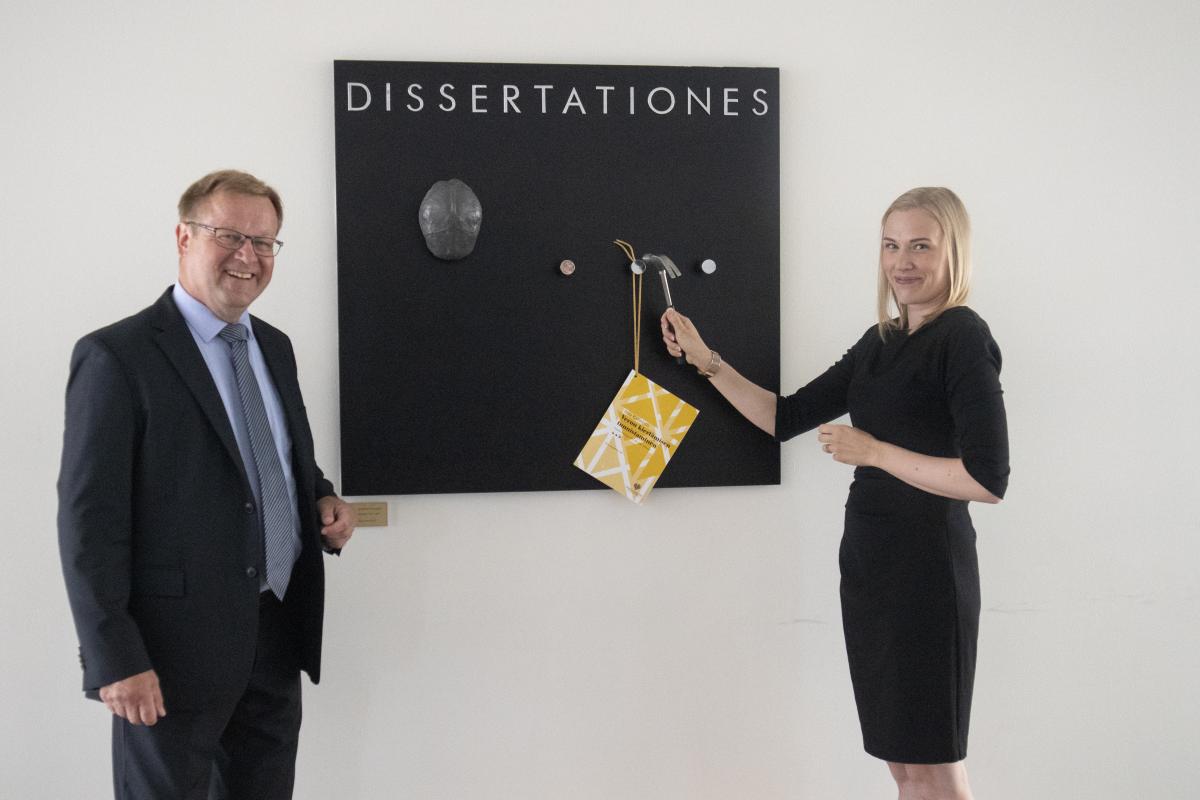Tax research promotes common rules

–If a taxpayer abuses a right granted to them, what will be the consequences and possible sanctions, says Juha Lindgren, professor of business tax law.
Situations to be examined may arise, for example, when a taxpayer pursues a tax benefit alien to the tax system or knowingly seeks a change in their taxation on false grounds.
Enhanced tax system clarity and predictability with the help of research
The prohibition of abuse of rights is a legal principle and the starting point of the legal system, which has its roots in both EU law and Finnish national law.
– The aim of our studies is to create a clearer interpretation of taxation and its legal situation. We want to improve the predictability of the tax system, which, among other sources of law, helps taxpayers when making financial decisions.
– Our studies show that the prohibition of abuse of rights shapes the regulation on general tax avoidance in such a substantial manner that it is justifiable to talk about a shift in the paradigm, says Siru Kaunisto, university teacher of business law.
Tax law research improves understanding
The researchers’ recently published articles show that EU tax law has an increasing impact on Finnish tax legislation and its interpretation.
The requirement of consistency requires that the same principles must also be taken into account elsewhere in the national tax system. Consistency and proportionality also have their roots in Finnish civil law.
– The introduction of the Anti-Tax-Avoidance Directive (ATAD) into the national tax legislation is of great importance. Although the wording of the general anti-tax avoidance legal provision was not changed, the directive has an impact on its interpretation. If a measure is given a form that does not correspond to its true nature or purpose, then, according to the provision on tax avoidance, taxation is carried out as if the correct form had been used, says Juha Lindgren.
We want to improve the predictability of the tax system, which, among other sources of law, helps taxpayers when making financial decisions.

Public indebtedness as well as political discussion and debate on aggressive tax planning show that the prevention of tax avoidance is a matter of social importance. At its core is legal research, primarily, which studies current law as well as the systematisation and interpretation of the legal rules.
– Legal doctrine serves judges and other persons applying law in practice as part of their work by producing recommendations on interpretation and it is, therefore, also very practical. In addition to the recommendations on interpretation , it can produce, for example, legislative recommendations, says Timo Torkkel, docent of business law at the University of Vaasa.
Researchers at the University of Vaasa focusing on tax law (Kalle Määttä, Timo Torkkel, Siru Kaunisto, Petra Lyly, Asko Lehtonen, Visa Kananoja and Juha Lindgren) have published dozens of works, articles and other writings in recent years.
Lyly, Petra: Home tax expenditures – aim, statute and influence, University of Vaasa Doctoral Thesis (dissertation defence 12/2021).
Kaunisto, Siru: Veron kiertämisen tunnistaminen: oikeuden väärinkäytön kielto VML 28 §:n tulkinnassa, University of Vaasa Doctoral Thesis (dissertation defence 8/2022).
Määttä, Kalle – Torkkel, Timo: Varainsiirtoverolain perusteet, Chamber of Commerce 2022.
Torkkel, Timo: Yrityksen verolaskenta, Chamber of Commerce 2023.
Määttä, Kalle, Metsänomistajan verotus, Chamber of Commerce 2023.

